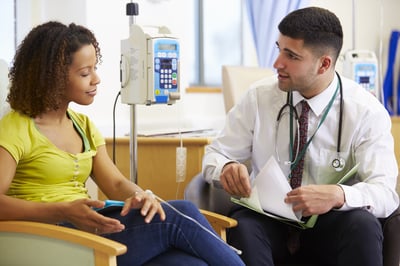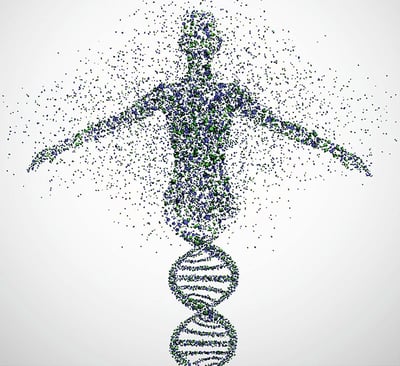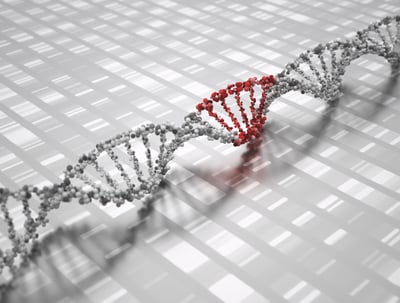Relevant for: previvors, In portal: Breast Cancer



Relevance: High
Most relevant for: People who are a member of a racial or ethnic minority group
Article: The importance of racial diversity in clinical trials
This article by journalists Caroline Chen and Riley Wong looks at racial disparities between participation in clinical trials and the population of people with cancer. (11/6/18)
Este artículo está disponible en español.
READ MORE ›


Relevance: High
Most relevant for: Young women diagnosed with breast cancer who have not yet had genetic testing
Study: Surgeon attitude impacts rate of genetic testing after a breast cancer diagnosis
A study in JAMA Surgery this year examined the factors that impact genetic testing after a breast cancer diagnosis. This study suggests that the attitudes of attending surgeons about genetic testing have the most impact on whether patients receive testing. (10/6/18)
READ MORE ›


Relevance: Medium-Low
Most relevant for: People who have a Variant of Uncertain Significance in a gene associated with cancer risk.
Study: A new method for determining whether genetic variants in BRCA1 increase cancer risk
Ever since BRCA1 was discovered, researchers have been trying to understand which of the thousands of possible DNA changes in this gene increase cancer risk and which are harmless changes. A new study in Nature reports how a cutting-edge technology called “genome editing” may be used to classify changes—known as variants of uncertain significance-in BRCA1 as harmful or harmless. Once validated, this same technology may be used to classify variants in other genes. (9/29/18)
READ MORE ›


Relevance: Medium-High
Most relevant for: Women with an inherited mutation linked to increased risk for cancer
Article: Cancer experience in families affects decision making
Women with inherited mutations in genes that increase breast and ovarian cancer risk have an additional challenge: coping with how those mutations impact their families and how a family member’s cancer experience can shape their own perception. In a recent U.S. News and World Report article, Elaine Howley explores how a woman's decisions about healthcare, cancer prevention and treatment are affected by experience with cancer in the family. (9/25/18)
READ MORE ›


Relevance: Medium-High
Most relevant for: Women with BRCA1 mutations who have had risk-reducing ovary removal and have never been diagnosed with breast cancer
Study: Hormone therapy and breast cancer risk after ovary removal in women with a BRCA1 mutation
Does hormone therapy (HT) alter the risk of breast cancer for woman carrying a BRCA1 mutation who have never been diagnosed with cancer? In this study, researchers showed that among women with BRCA1 mutations, HT use did not increase breast cancer rates for 10 years after ovary removal. More women taking combined estrogen plus progesterone developed breast cancer compared to those taking estrogen only, though this difference was not statistically significant. (9/7/18)



Relevance: Medium-High
Most relevant for: People diagnosed with triple-negative breast cancer
Study: Study identifies genes associated with risk of triple-negative breast cancer
Panel testing can identify women who are at increased risk for breast cancer. However, those at risk for triple-negative breast cancer cannot easily be identified because other than BRCA1, genes that increase the risk for triple-negative breast cancer are unknown. A new study uses panel testing to identify which genes increase the risk for triple-negative breast cancer. (8/23/18)
READ MORE ›


Relevance: Medium
Most relevant for:
Article: Interview with Angelina Jolie's doctor promotes meatless diet and scientific inaccuracies
Dr. Kristi Funk, Angelina Jolie's Hollywood breast surgeon, is promoting her new book about breast cancer. This article from the UK newspaper The Times includes an interview with Funk about her book, which proposes that diet is responsible for breast cancer. This XRAYS addresses scientific inaccuracies in this article. (8/7/18)
READ MORE ›


Relevance: High
Most relevant for: People diagnosed with breast cancer
Article: High health insurance deductibles can interfere with breast cancer treatment decisions
A New York Times article published on May 4, 2018 examines the impact of high insurance deductibles on breast cancer treatment. (7/12/18)
READ MORE ›


Relevance: Medium
Most relevant for: People who are considering or have had direct-to-consumer testing
Study: Evaluation of some direct-to-consumer genetic testing reveals inaccuracies and misinterpretations
A clinical genetic testing laboratory examined results from direct-to-consumer genetic testing ordered directly by patients. They found many instances of false positives—reported mutations that were not actually present—and in some cases, reports of variants that "increased risk," but were actually benign. This study emphasized the importance of involving genetics experts in the interpretation of genetic test results. (6/28/18)
READ MORE ›


Relevance: Medium-High
Most relevant for: Women with an MSH6 or PMS2 mutation
Study: Mutations in Lynch syndrome genes MSH6 and PMS2 may be associated with breast cancer
Some women with mutations in MSH6 and PMS2, two Lynch syndrome genes, may have a modest (2 to 3-fold) increased risk for breast cancer. (6/14/18 updated 09/25/19)
READ MORE ›